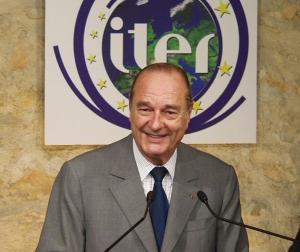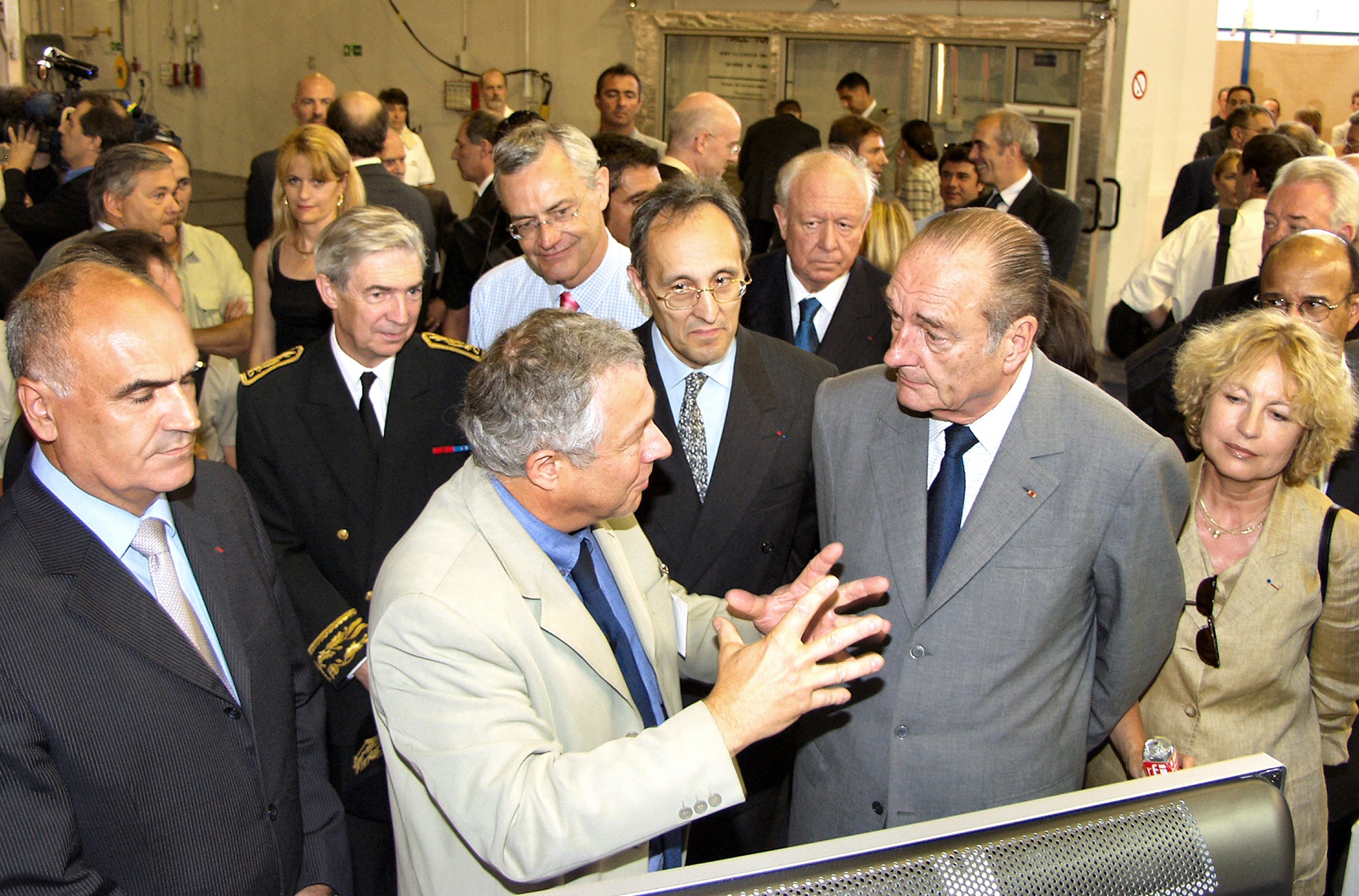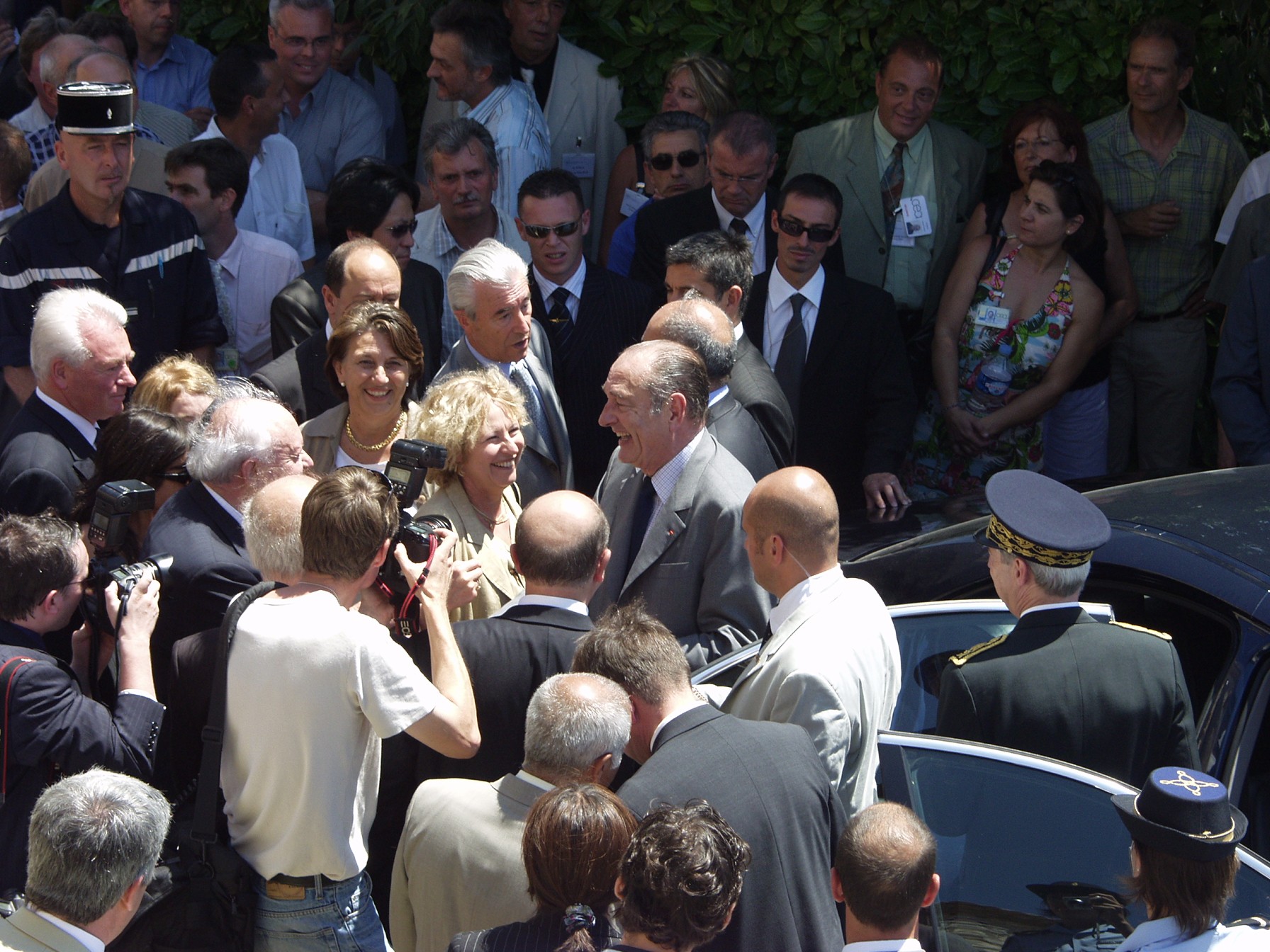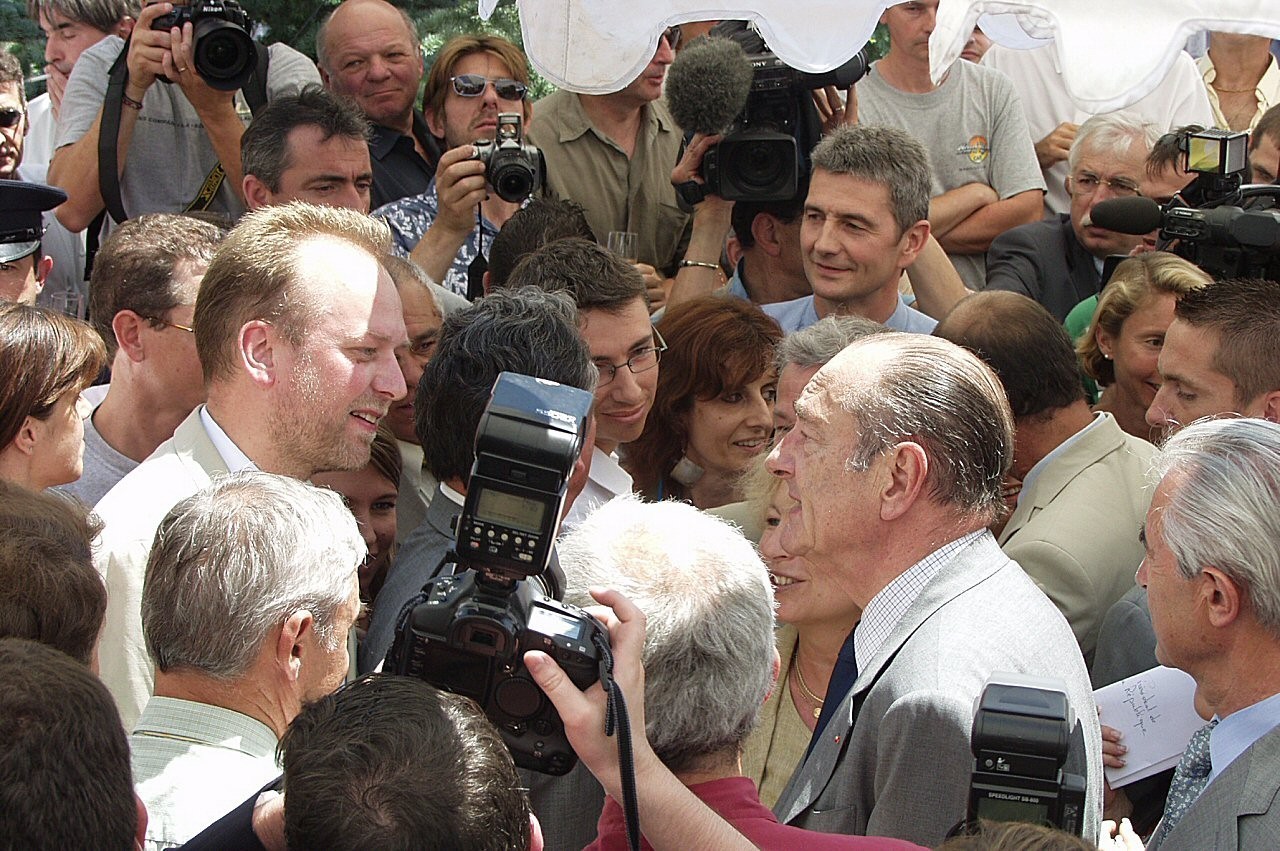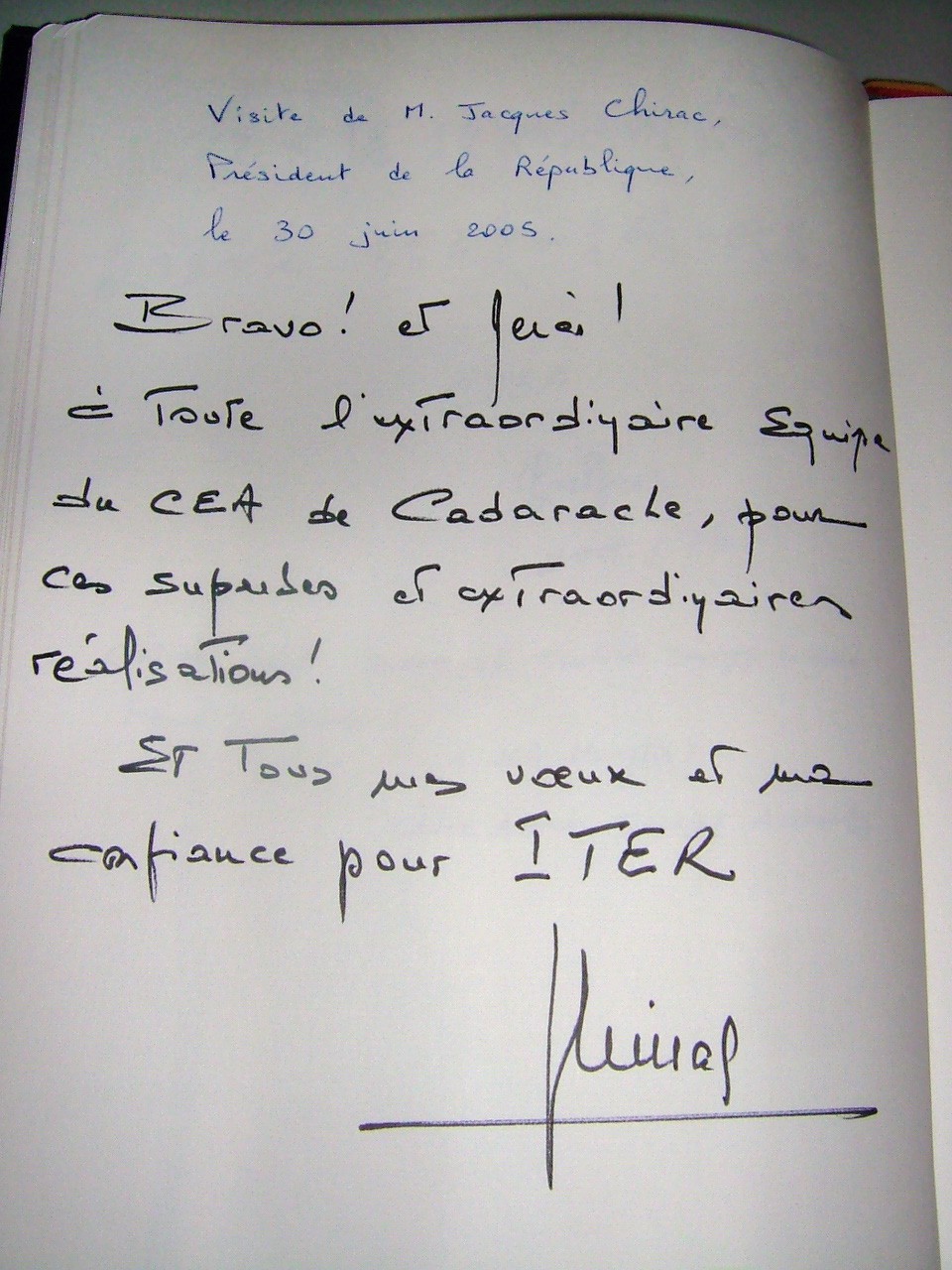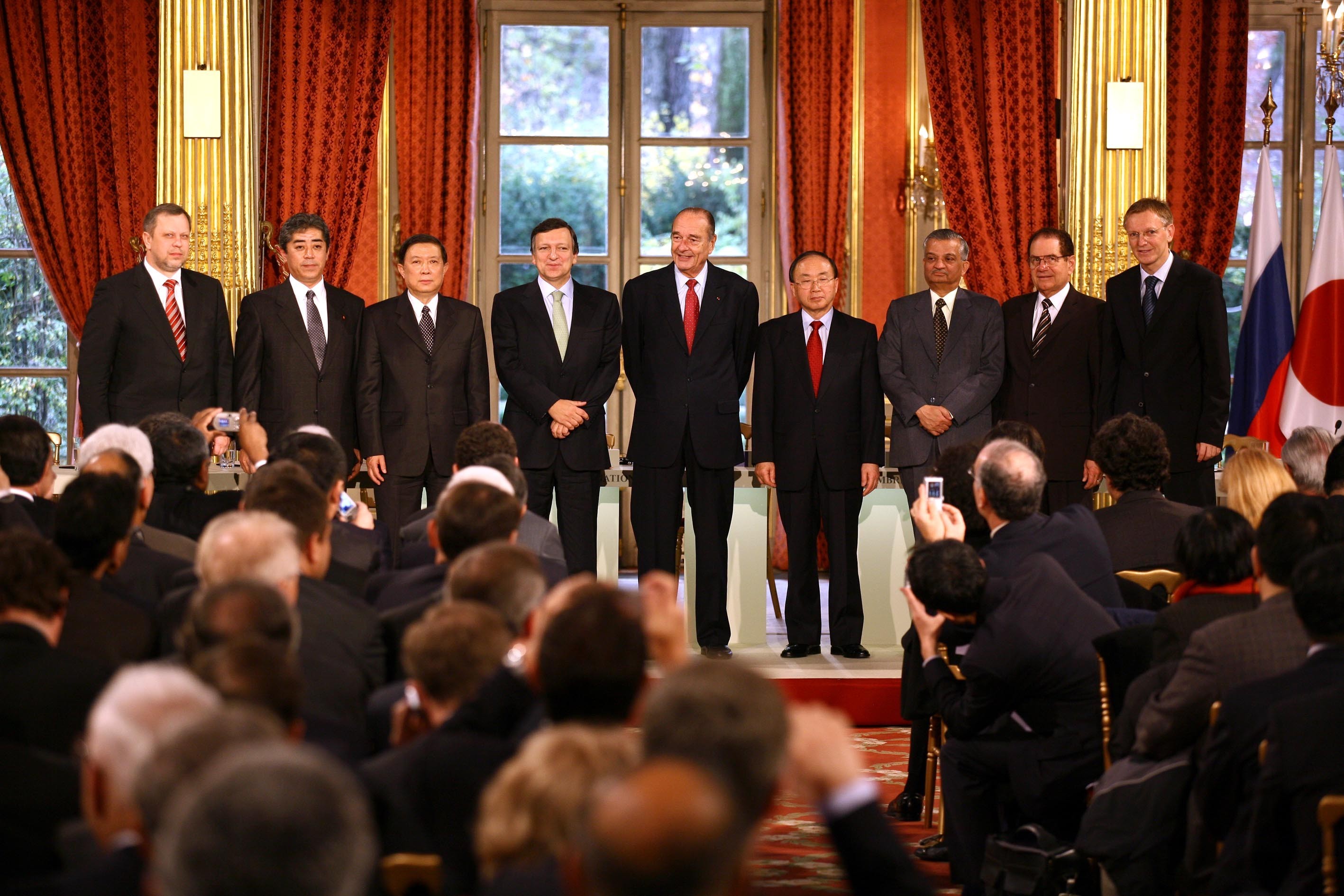What ITER owes President Chirac
ITER will remember former French President Jacques Chirac, who passed away on Thursday 26 September, as someone deeply involved in the ITER project—the statesman who helped finalize the negotiations in June 2005 on the siting of the ITER installation and who hosted the signature of the ITER Agreement at the Elysée Palace in November of the following year.
In 2005, President Chirac was three years into his second mandate and site negotiations between the ITER Members had been ongoing for close to 18 months: Europe proposed to host ITER in Cadarache, France, and Japan proposed Rokkasho-Mura in Aomori Prefecture, at the northern tip of the country's main island Honshū.
It was the common understanding among ITER Members that the final decision would be a unanimous one and that there would be no "winner" or "loser" in the outcome. Unanimity, however, proved difficult to obtain.
Among European decision makers, Jacques Chirac had a distinctive quality. He was, as a French daily wrote in his obituary, "a Japanese in his heart and soul." His passion for Japanese civilization, art forms, values, social and economic organization, and sumo wrestling, was a constant throughout his adult life. He was a frequent visitor to Japan and had many friends there.
When he flew to Japan for a three-day official visit in March 2005—the 45th in his long public career—the ITER files were in his suitcase.
Nothing ever filtered from his conversations with Prime Minister Koizumi. But gradually things changed. Proposals were made, discussed and eventually accepted. Europe would establish a special collaboration with Japan—the "Broader Approach"—that both included and went beyond ITER; the commitments and benefits of "Host" and "Non-Host Member" were redefined in a "win-win" approach.
On 28 June 2005 in Moscow, the ITER Members reached the long-awaited unanimous decision: the ITER installation would be hosted on the site that Europe had officially proposed two years earlier.
Two days after the Members' decision, the French President was in Cadarache—very short notice for those in charge of organizing his visit. To those who had been involved for years in ITER, he stressed the importance of the project "for the future of the planet" and the unique nature of the international collaboration that would turn it into reality.
A twenty-year long process, initiated at the Reagan-Gorbachev Summit in 1985, was coming to an end and a formidable adventure was beginning: the implementation of the world's largest international scientific collaboration, whose aim is to open the way to a new, safe, clean and inexhaustible source of energy.
In November 2006, under the gilded ceilings of the Elysée Palace, President Chirac presided over the signature of the ITER Agreement in the presence of high representatives of the seven ITER Members and praised the "unprecedented association of seven major partners [...] extending their hand to the future generations in the name of solidarity and responsibility."

